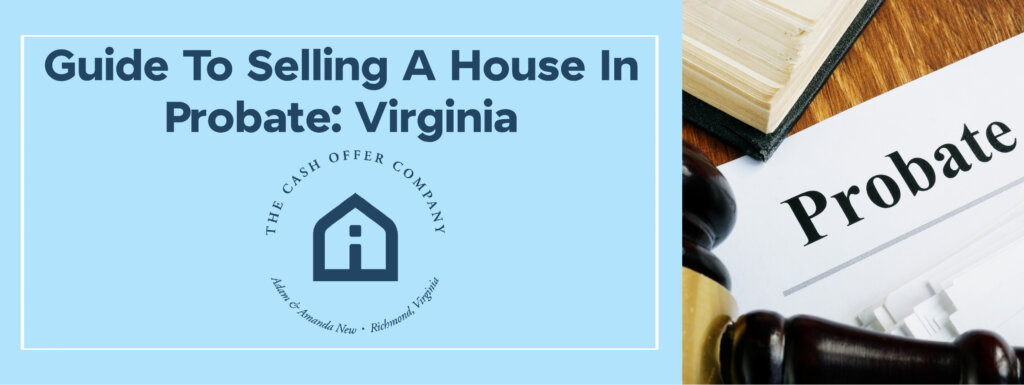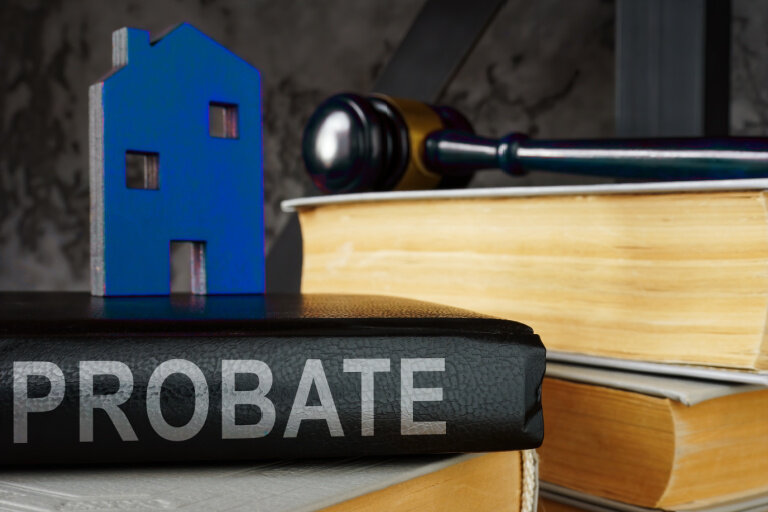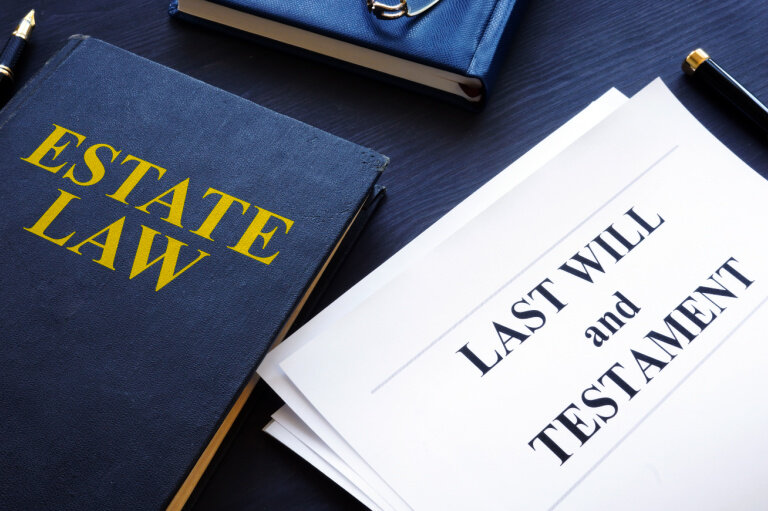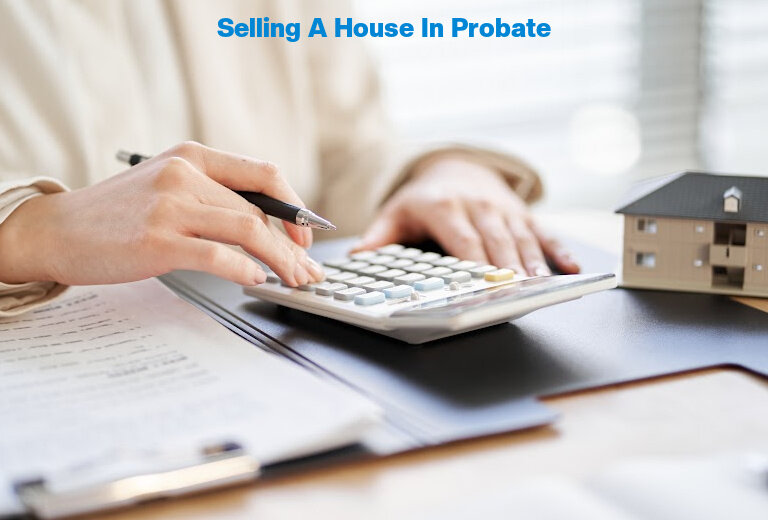
How to Sell A House in Probate in Virginia A Complete Guide to Selling Your Probate Property in Virginia
Dealing with a house in probate can be stressful even in the best circumstances, but it doesn’t have to be difficult. In a time of grief and upheaval, the last thing you need is a lengthy, sometimes confusing legal process.
We know that you want to make sure you are making the right decision for yourself and your loved one. This guide will give you the information you need to sell your house in probate in the Commonwealth of Virginia without hassle.
What does Probate Mean?
Probate is the legal process used to transfer the estate of a person who has passed away to their heirs, also called beneficiaries. In Virginia, this process is handled in the circuit court of the county where the descendent lives.
The court appoints an executor or administrator of the estate who sells the house in order to divide the inheritance among beneficiaries. The seller can be an individual or a real estate agent. This is a personal representative who is either named in the will, has petitioned the court, or has been installed by the state.

Intestate & Testate: What is the Difference?
When someone who already has a valid will dies, it is called dying in “testate” and the deceased person is referred to as the “testator.” In Virginia, a will is valid if it meets the following criteria:
- The deceased was at least 18 years old
- The will is in writing (holographic or handwritten wills are accepted)
- It is signed by the deceased person
- The testator was competent and signed voluntarily
- There were a minimum of 2 witnesses
- Named executor qualifies with Circuit Court
If someone dies without a will or dies “intestate,” then they do not have a named executor. In Virginia, the state laws dictate who inherits the estate assets.
Within 30 days of the descendant’s death, a soul heir or an heir with the consent of other beneficiaries qualifies as an administrator of the estate and will be appointed by the clerk of the circuit court. After 30 days any heir may qualify and the probate process can begin from there.
Probate Process For Selling Real Estate in Virginia
It is important to know that the process is different in each state. If you live in a different state from the deceased person, you will have to file in the county or town that the descendent lived in at the time of his or her death.

Step 1: File with the Local Court
After a person dies testate or intestate in Virginia, you file with the clerk of the circuit court in the town or county of the descendent. When filing the probate with the court, you should bring:
- The original signed will (if possible)
- Death Certificate
- The estimated value of all estate assets
Estate inheritance can be land and real estate, investments, collectibles, belongings, and other physical and intangible assets, such as bank accounts. While not required at the initial finding, it is also necessary to file the descendant’s final state and federal income tax returns. If there are others named on the title of the house, such as a surviving spouse, it is possible you may need to bring the title as well. Until the estate completes probate, heirs may not be able to access any part of the inheritance.
Step 2: The Court Appoints an Executor
As stated earlier, if there is already a qualified executor for the estate named in a valid will, then that person will continue as executor. However, if the person named does not want to be executor, is deceased, or the heirs cannot agree on who should be the executor, you must file a separate petition and the court will decide on an administrator. Administrators and executors can be an individual or qualified business entity.
In Virginia, if no one is named or if the executor does not qualify to oversee the estate, the closest relative of the deceased person will inherit the estate. When the court certifies that the administrator, also called a fiduciary, has settled all debt, filed required tax returns, and distributed inheritances, personal representatives are relieved of their position.
Step 3: Sell the Real Estate and Distribute Assets
Once an executor or administrator has been named, they have the legal right to sell the probate house. The court will also publish the probate in the newspaper to notify creditors that the family may not be aware of. During this process, you should take stock of all assets, with or without the help of an appraiser.
When Can The Executor Sell The Probate Property?
When an Executor can sell depends a lot on the individual circumstances of the probate procedure. For example, if the descendent passed away with a substantial amount of debt, the court has to sign off on a written offer to make sure that the debt will be properly paid, as well as the other taxes and fees involved with the probate process.
Can You Sell A House Before Probate is Complete?
Yes, you can sell an estate in Virginia before probate is finalized. When this happens, the money from the sale goes into a probate escrow account and is dispersed once the probate is complete and all debts are paid. This is a good option for those who didn’t live near the descendant and are dealing with the process from afar.
Do you need to go through probate to sell an inherited house in Virginia?
Yes, you will typically need to have an executor appointed by the court to sell an inherited home. However, there are a few non-probate circumstances in the Commonwealth of Virginia that may allow the sale to proceed without formal probate.:
- Joint Tenancy or Tenancy by the Entirety Assets
- IRAs & 401Ks
- Life Insurance or Pension Benefits
- Assets in a Revocable Living Trust
- Payable-on-Death Bank Accounts
Potential Issues and Hurts When Selling Your Probate Property
The biggest hurdle when selling your probate is the requirement by the court that any offer has to be at least 90% of the appraised value. This is because there are fees and taxes involved in the court process.
There is a state probate tax that is based on the total inheritance and an additional federal tax for those with estates totaling more than 12 million dollars. Additionally, there may be a local probate tax depending on the state and county that you have filed in.

Another issue when selling your house in Virginia is the amount of debt a descendant has at the time of their passing. Creditors have the right to settle debts by collecting from an estate’s assets. For example, someone with a lot of debt might use the sale of their house in probate to pay off those debts. Don’t worry if the estate can pay the totality of the events, it doesn’t fall back on you or the executor personally as long as you don’t misrepresent debts, hide assets, or mislead creditors.
3 Options You Can Consider When Selling a House In Probate
1. Listing With A Real Estate Agent
Listing your inherited house with a real estate agent may seem like the most straightforward path to a simple sale. This may be true if the house is in good shape and the market is in your favor, but for some people, this just isn’t an option.
Listing with a realtor adds additional costs to the already costly process of selling a probate house, including commission and closing costs. There is no guarantee of a quick offer, but it may be easier to get an offer that exceeds the requirement of a minimum of 90% of the appraised value of the estate.
There is also the added difficulty of cleaning and staging the descendant’s home for sale. If you live a long distance from the location of the house, a realtor can help with showings, but it also requires extra work to prepare a house for potential buyers, and you may have to complete costly repairs in order to sell the home.
2. Selling The Property To A Family Member
If possible, you can always sell the property to a family member if they are looking to keep the house in the family. This is a good option for those families who have the ability to purchase the house above the 90% appraised value.
Unlike investors, a family member will have to purchase the house with a mortgage, as they most likely won’t have the cash to pay the offer in full. This can take some time and may delay the probate process. You may have to still complete repairs to sell the home to meet certain requirements.
3. Selling As-is to a Cash Home Buyer
Selling your property fast for cash is really the best way to do things: it closes the probate quicker and guarantees a sale. Unlike selling a property to a family member or listing with a real estate agent, selling your probate house to The Cash Offer Company can help save you time and money during an already difficult process.
In Virginia, you have the option to request a short sale on a probate home that is in poor condition. If the house needs a lot of work or its better days are in the past, buyers may not be drawn in no matter the price.
Investors are looking to pay cash for probate real estate as-is, with no need to complete repairs or even remove belongings. The court is only interested in selling the home close to the appraisal value, so this is the best option for low-value homes as they can still move just as quickly as in-demand properties in popular, competitive real estate areas. These are real offers, as opposed to lukewarm responses from those selling with a realtor.
Probate House Sale Virginia Frequently Asked Questions
It’s only natural to feel unsure about what you’re doing, especially during the probate process. Make sure that you speak with other heirs and family members during the process to make sure there are no surprises or disagreements during this time.
There are a lot of resources about selling your probate home out there, but don’t feel bad if you still need additional help.

This process can be intimidating even when you aren’t going through the loss of a parent or other close relative. Instead of struggling alone, reach out to qualified professionals who can help make the probate procedure easier. Here are some things you may still be wondering about.
Can an executor sell the probate property to himself?
Yes! The executor can sell the property to themselves as long as all other beneficiaries agree and they can buy the house for close to the appraised worth. However, if no one wants the inherited property because it is in poor condition or has costly repairs, it may be easiest to sell your house for a cash offer and close quickly and on your schedule.
Can you live in a house during probate?
You can live in a house during this process, and it is probably best that someone does. Leaving a house empty can pose certain security risks, and you want someone to make sure that the place is presentable for potential buyers.
How long does it take to sell a house in probate?
The probate process can be a long and time-consuming one. Depending on a series of factors, you can expect the probate to last anywhere from six months all the way up to a year or more. The timeline depends partially on how many beneficiaries there are if heirs can agree on what to do, and if there is anyone contesting the will.
In addition, there also may be a period for creditors to settle debts, so an estate will not be completely distributed or closed before the six-month period.
Can you empty a house before probate?
Yes and no. It depends on whether or not their home is part of the probate process. For those who have passed and the inheritance exceeds the costs of probate, final tax returns, and other associated fees then you can remove the items from the property. However, if the descendant left behind a large amount of debt that needs to be settled and the property is part of settling those accounts, then you may not remove the furnishings and other items from the home as it is part of the probate sale.
Do all heirs have to agree to sell probate property?
In Virginia, not all beneficiaries have to agree in order to sell a property. The executor or the administrator still has the right to sell the property, but all beneficiaries must be notified of the sale and you may have to apply through the court in order to do so.
Takeaways: Selling Probate Property In Virginia
Selling your probate home fast for cash is most likely the best way to do things. It shortens the probate length, which will be at least a six-month process in the state of Virginia, and, unlike listing with a realtor, it is always a guaranteed sale.
If you are looking to transfer all inheritance, pay off debts and fees, and close your probate home quickly, a cash home buyer like the Cash Offer Company is best suited to help you. If the property needs a lot of work or repairs, or the house will not sell easily on the market, a house-buying company that operates in Virginia can get you a real cash offer in as little time as possible.
Easy Probate Sale
If you are looking for a fast sale or just want to sell inherited estate simply, with no hassle or extra red tape, The Cash Offer Company can get you a 100% free, fast, and fair offer for your home with no obligation. As a local house-buying company that operates throughout Virginia, Adam and Amanda New have built their business on saving homeowners the trouble of dealing with the difficulties involved in the typical home-selling process. This husband and wife team can help you get started with a real offer in as little as seven days. Fill out the form and sign up to receive your free, no-obligation offer from home-buying experts.
![Trustworthy Cash Home Buyer [market_city]](https://image-cdn.carrot.com/uploads/sites/27469/2024/08/Trustworthy-Cash-Home-Buyer-1920x800.png)
